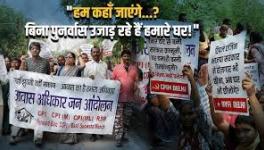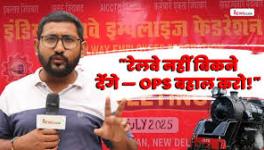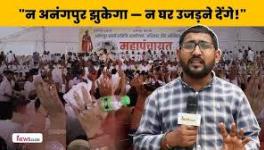Lebanon Elections: Status Quo Continues
The elections in Lebanon held have handed a victory to the March 14 coalition – widely perceived to be pro-west. They have won 71 seats, as against 57 won by the March 8 coalition lead by Hezbollah, a marginal increase over their 2005 election figures.
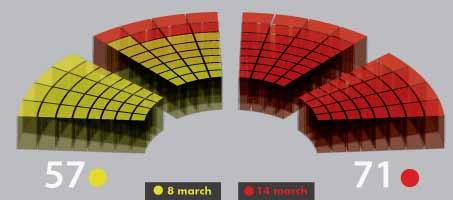
Contrary to the campaign that if it lost the elections, the Hezbollah would take Lebanon immediately to an armed confrontation, Hassan Nasrallah, the leader of the Hezbollah, gave a graceful speech in Al Manar TV conceding defeat and promising cooperation to the new Government.
This leaves the question of the new government open – will it be a national government which will rule through consensus or will it be a majority government which will try and drive the US agenda in Lebanon. The formation of a new government is going to take time and these knotty questions need to be settled through negotiations before contours of a new government become visible. The good part is that Saad Hariri has also welcomed Nasaralla's speech as “positive and open” . In an interview to al-Hayat newspaper, he also said “.. if we are March 14 or March 8 forces, we must hear each others' voices.”
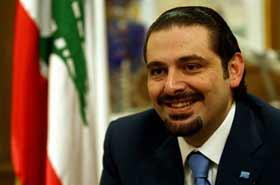
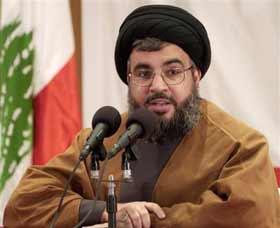
Saad Hariri Hassan Nassrallah
The Lebanese electoral process is not the usual one in most countries. Lebanon being a “confessional” state, each religious group has a clearly defined number of seats. Even the functionaries of the Government are fixed based on religion – the President is a Maronite Christian, the Prime Minister a Sunni and Shia's can only hold the largely ornamental position of the Speaker of the legislature. The number of seats are also based on the demography that prevailed 60 years back – Christians who today probably are about 35% of the Lebanese population, hold 50% of the seats, with the rest being divided amongst Shias, Sunnis and the Druze. Even here, the Shias hold proportionately lesser number of seats than their current population figures would warrant.
The March 14 coalition is lead by the billionaire Saad Hariri of the Future Movement, the son of the former Prime Minister Rafik Hariri, who was assassinated in 2005. This assassination was widely attributed to pro Syrian elements. Syria had militarily intervened in Lebanon after its collapse into civil war. It was this assassination that propelled the constituents of the March 14 into power and forced Syria to withdraw from Lebanon. The other important constituent is the Druze leader Walid Jumblatt, along with other Christian parties such as the Phalangists.
The results show that Hezbollah, Hariri and Jumblatt largely held on to their constituencies – the Shias voted for Hezbollah, the Sunni areas for Hariri and the Druze areas for Jumblatt. The key contest was in the Christian areas with Michale Aoun, the retired Christian General and his party -- Free Patriotic Movement – siding with the Hezbollah and other Christian groups aligning with the March 14 forces. It was here that the results have swung decisively in favour of the Hariri faction leading to their emerging as the majority in the elections.
The March 14 coalition ran a strong sectarian campaign amongst the Christians, “... the American-backed, Sunni-led coalition appears to have conducted a well-calculated negative campaign, stoking sectarian tensions and fears of Iranian and Syrian dominance” (New York Times: June 9, Michael Slackman).
Aoun ran on the theme of reconciliation with Hezbollah and the need to move beyond the Christian Muslim divide that has brought Lebanon to civil war. Aoun also attacked the culture of corruption and patronage that is very much a part of the ruling political ethos in Lebanon. However, obviously the Christina voters preferred to remain with Hariri and not choose the uncharted path sketched by Aoun.
Apart from the sectarian campaign demonising Hezbollah, there was also direct US intervention in the Lebanon elections. Joe Biden, the US Vice President made it clear two weeks before the elections when he visited Lebanon that the US would isolate a regime headed by Hezbollah. This message was repeated by just before the voting. Jeffrey Feltman, Deputy Secretary of State for Near East Affairs, blitzed the media on the morning before the elections through interviews with pro-Majority An-Nahar and al-Hayat newspapers, calling for the Lebanese to be “smart enough” to vote as the US saw fit. He said, “The election's outcome will naturally affect world's stance towards the new Lebanese government and the manner in which the United States and Congress deal with Lebanon. I believe the Lebanese are smart enough to understand that there will be an effect.” (Lebanon's Election results and the Age of Resistance)
The message to the Lebanese voter was clear. Either vote as we want or we will reduce Lebanon to another besieged Gaza. The March 14 leaders played on the same theme: Sami Gemayel, a Phalangist Christian candidate who opposed Hezbollah, proclaimed, “The choice is between Gaza and a developed, civilized Lebanese state.”
Lebanon, with its most of its infrastructure reduced to a rubble in Israel's brutal attack in 2006, needs international help to put its economy back in order. The spectre of a Gaza like blockade seemed to have swung the Christian voters away from Aounists, handing victory to Hariri and his partners. The fear of Gaza trumped the Hezbollah charge that the March 14 coalition was pro US. It is possible that Obama's Cairo speech, widely seen to be conciliatory to Muslims, also helped in blunting some of the anti US sentiment on the ground.
The key question now is whether the new Government would work though consensus or take to a path of confrontation. The March 14 coalition's pre-election stand is that the minority cannot have a veto in the Government – it must run only through majority rule. If this call for majority rule translates into an attempt to disarm the Hezbollah militia, as Israel has already demanded, this would drag the country back to civil war.
Hezbollah has already said that as long as Lebanon is threatened by Israel, it is not going to give up its arms. Hezbollah MP Mohamed Raad, the Opposition leader in Parliament, reminded his fellow Lebanese that “the majority must commit not to question our role as a resistance party, the legitimacy of our weapons arsenal and the fact that Israel is an enemy state”. It sees itself as the only protection in southern Lebanon, where it has defeated Israel in two wars.
Given the nature of the mandate – a mandate based on religious identities and not a representative vote, Lebanon demands a conciliatory polity and consensus on major issues. Hezbollah member, Hasan Fadlallah, an MP in the outgoing parliament, clarified, “What matters to us now is that Lebanon turns a new page, one based on partnership, cooperation and understanding," He further said. "Lebanon's specificity is in its diversity and there is no majority or minority. No party can claim to have won the majority among all communities."
It is to be seen how the others share this view or whether, under the US and Israeli pressure, the Hariri coalition would take to a path of confrontation.
Get the latest reports & analysis with people's perspective on Protests, movements & deep analytical videos, discussions of the current affairs in your Telegram app. Subscribe to NewsClick's Telegram channel & get Real-Time updates on stories, as they get published on our website.









